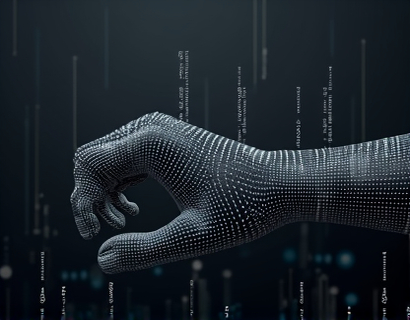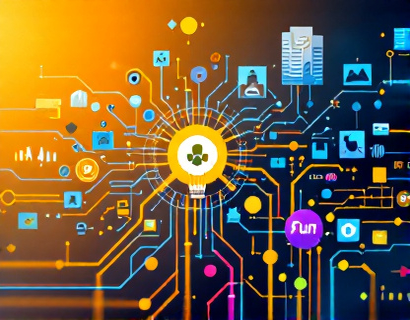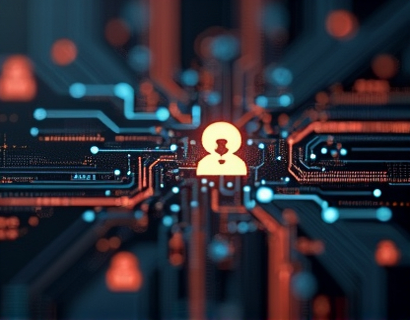Transforming Education with AI-Powered Chatbots: A Comprehensive Guide for Students, Families, and Educators
The integration of artificial intelligence in educational settings has opened new avenues for learning, making knowledge more accessible and personalized than ever before. Among the various tools emerging in this space, AI-powered educational chatbots stand out for their ability to provide specialized insights tailored to the needs of students, families, and educators. This article delves into the capabilities and benefits of these innovative chat platforms, focusing on how they deliver industry-relevant knowledge and services while ensuring a safe and educational experience for all users.
Understanding AI-Powered Educational Chatbots
AI-powered educational chatbots are sophisticated tools designed to interact with users through natural language processing. These chatbots leverage machine learning algorithms to understand and respond to queries with precision and relevance. Unlike traditional Q&A systems, these chatbots can engage in multi-turn conversations, providing step-by-step explanations and detailed insights. This capability makes them invaluable resources for learners seeking in-depth knowledge on specific topics.
Specialized Insights for Students
For students, AI chatbots offer a personalized learning experience. These chatbots can adapt to the individual's learning pace and style, providing explanations that cater to their specific needs. Whether a student is struggling with a complex mathematical concept or seeking to understand the nuances of a historical event, the chatbot can deliver content that is both accurate and comprehensible. The interactive nature of these chatbots encourages active learning, as students can ask follow-up questions and receive immediate feedback.
Moreover, these chatbots can serve as virtual tutors, offering additional support outside of regular classroom hours. This is particularly beneficial for students who may require extra help or have unique learning challenges. By providing immediate and personalized assistance, AI chatbots help bridge the gap between traditional classroom learning and individual student needs.
Family Engagement and Support
AI-powered chatbots also play a crucial role in engaging families in the educational process. Parents and guardians can use these chatbots to stay informed about their child's progress, receive tips on how to support learning at home, and access resources that align with the curriculum. This level of transparency and communication fosters a collaborative environment where families and educators work together to enhance the student's educational journey.
For instance, a chatbot can send regular updates on a student's performance, highlight areas of improvement, and suggest activities to reinforce learning. This continuous feedback loop ensures that parents are well-informed and can provide timely support. Additionally, chatbots can offer guidance on educational resources and tools that are suitable for different age groups and learning styles, empowering families to create a supportive learning environment at home.
Educator Resources and Professional Development
Educators are another key beneficiary of AI-powered educational chatbots. These chatbots can serve as valuable tools for professional development, offering access to the latest research, teaching strategies, and industry trends. By staying updated with the latest educational practices, teachers can enhance their teaching methods and better meet the needs of their students.
Chatbots can also assist educators in lesson planning and resource curation. They can provide recommendations for educational materials, interactive activities, and assessment tools that align with educational standards and learning objectives. This not only saves time but also ensures that the content being used in the classroom is relevant and effective.
Ensuring Content Verification and Safety
One of the most significant advantages of AI-powered educational chatbots is their commitment to content verification. These chatbots are designed to provide accurate and reliable information, sourced from reputable and peer-reviewed databases. This feature is crucial in maintaining the integrity of the educational content and ensuring that students and families receive trustworthy information.
To further enhance safety, many chatbots offer child-friendly versions that filter content and interactions to ensure a secure and appropriate environment for young users. These versions adhere to strict guidelines to prevent exposure to inappropriate content and ensure that all interactions are monitored and controlled. This makes AI chatbots a safe tool for children to use, both at school and at home.
Industry Knowledge and Services
AI chatbots can also serve as a gateway to industry-specific knowledge and services. For students interested in particular fields, these chatbots can provide insights into career paths, required skills, and educational requirements. They can offer information on industry trends, emerging technologies, and professional development opportunities. This early exposure helps students make informed decisions about their future and prepares them for the demands of the workforce.
For educators and families, chatbots can provide detailed information about industry-standard practices, certifications, and accreditations. This knowledge is invaluable for ensuring that educational programs are aligned with industry needs and that students are equipped with the skills required for success in their chosen fields.
Interactive Learning Experiences
The interactive nature of AI chatbots enhances the learning experience by making it more engaging and dynamic. Through conversational interfaces, students can explore topics in a way that feels natural and intuitive. For example, a student asking about the water cycle can receive a step-by-step explanation, accompanied by visual aids and interactive elements that reinforce the concept.
These chatbots can also facilitate project-based learning by guiding students through research processes, data analysis, and presentation skills. By simulating real-world scenarios and providing immediate feedback, chatbots help students develop critical thinking and problem-solving abilities, which are essential for success in any field.
Personalized Learning Paths
One of the most compelling features of AI-powered educational chatbots is their ability to create personalized learning paths for each user. By analyzing a student's strengths, weaknesses, and learning preferences, the chatbot can tailor the educational content to meet individual needs. This personalized approach ensures that each student receives the support they need to succeed, regardless of their starting point.
For instance, a student who excels in science but struggles with language arts can receive more challenging science materials and additional language resources. This balanced approach helps prevent frustration and keeps students motivated, as they see progress in areas where they need it most.
Collaboration and Community Building
AI chatbots can also foster a sense of community among students, families, and educators. By facilitating discussions and collaborative projects, these chatbots help build a network of learners who can support and inspire each other. Online forums and discussion groups integrated with the chatbot platform can serve as spaces for sharing ideas, asking questions, and collaborating on assignments.
This community aspect is particularly beneficial for students who may feel isolated or lack access to peers with similar interests. By connecting with others through the chatbot, students can form meaningful relationships and gain diverse perspectives, enriching their learning experience.
Conclusion
AI-powered educational chatbots represent a significant advancement in the way we approach learning. By providing specialized insights, ensuring content verification, and offering a safe and interactive environment, these chatbots enhance the educational experience for students, families, and educators alike. As technology continues to evolve, the potential for AI in education is vast, promising a future where learning is more accessible, personalized, and effective.











































